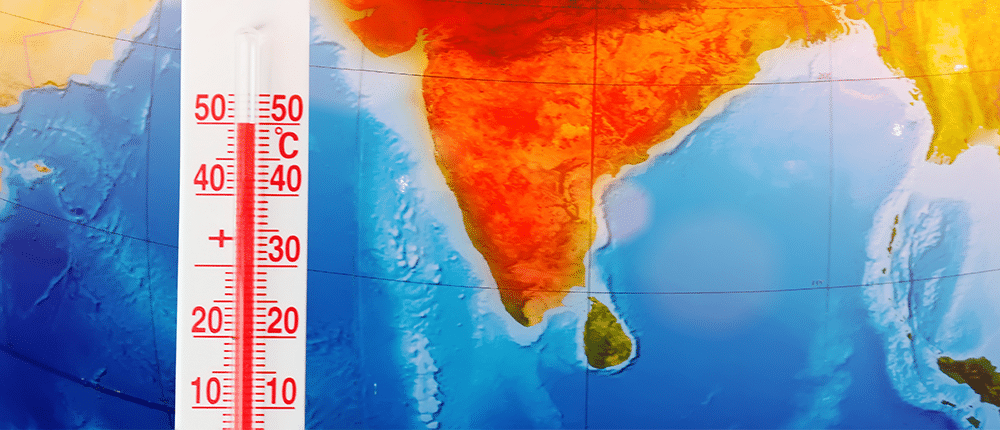India Addresses Extreme Heat Risk

Principal Secretary to the Prime Minister, Dr. P. K. Mishra, has called for urgent action to combat extreme heat, highlighting its status as a global crisis. Speaking at the Special Session on Extreme Heat Risk Governance in Geneva on June 6, 2025, he echoed the sentiments of the UN Secretary-General. Dr. Mishra pointed out that rising temperatures pose significant risks to public health, economic stability, and ecological resilience. He expressed India’s support for the UNDRR’s initiative aimed at advancing a Common Framework for Extreme Heat Risk Governance, which promotes shared learning and collaboration.
India’s Proactive Approach to Heat Risk Management
Dr. Mishra emphasized that under Prime Minister Narendra Modi‘s leadership, India has adopted a proactive stance on managing extreme heat risks. He noted a shift from merely responding to disasters to implementing integrated preparedness and mitigation strategies. Since 2016, the National Disaster Management Authority (NDMA) has established comprehensive national guidelines for heatwave management, which were updated in 2019. These guidelines have laid the groundwork for decentralized Heat Action Plans (HAPs). The Principal Secretary highlighted the Ahmedabad Heat Action Plan as a successful model, showcasing how early warnings, inter-agency coordination, and community outreach can effectively save lives.
Currently, over 250 cities and districts across 23 heat-prone states have operational Heat Action Plans, supported by the NDMA’s advisory and technical mechanisms. Dr. Mishra noted that enhanced surveillance, hospital readiness, and awareness campaigns have led to a significant reduction in heatwave-related fatalities. This comprehensive approach underscores India’s commitment to tackling the challenges posed by extreme heat.
Whole-of-Government and Whole-of-Society Engagement
Dr. Mishra outlined India’s inclusive strategy, which involves collaboration across various government ministries, including health, agriculture, urban development, labor, power, water, education, and infrastructure. He acknowledged the vital role played by public health institutes, research organizations, civil society groups, and universities in supporting local governments to improve their heat action plans. This collaborative effort aims to create a robust framework for addressing the impacts of extreme heat on communities.
He also emphasized the importance of integrating traditional wisdom and local experiences into India’s response to extreme heat. Schools have been identified as key players in promoting climate resilience by educating children about the importance of adapting to changing weather patterns. Additionally, Dr. Mishra stressed the need to strengthen hospitals and primary health centers to ensure they can respond swiftly and effectively during heat emergencies.
Innovative Solutions for Long-Term Mitigation
Dr. Mishra discussed India’s transition from a focus solely on preparedness to implementing long-term heatwave mitigation strategies. These include the adoption of cool roof technologies, the establishment of passive cooling centers, urban greening initiatives, and the revival of traditional water bodies. He highlighted the integration of Urban Heat Island (UHI) assessments into city planning as a critical step toward creating more resilient urban environments.
In a significant policy shift, Dr. Mishra announced that National and State Disaster Mitigation Funds (SDMF) can now be utilized for heatwave mitigation efforts. This change allows local governments, private sector entities, NGOs, and individuals to co-finance prevention and mitigation projects, fostering a sense of shared responsibility in addressing the challenges posed by extreme heat.
Global Collaboration and Future Challenges
While acknowledging the progress made, Dr. Mishra also pointed out the challenges that remain. He called for a global focus on developing a localized heat-humidity index based on real-time data to enhance early warning systems. Additionally, he emphasized the need for advancements in building technologies and passive cooling innovations that are both affordable and culturally appropriate. Addressing equity concerns is also crucial, as extreme heat disproportionately affects vulnerable populations, including women, outdoor workers, the elderly, and children.
Dr. Mishra stressed that heatwaves represent transboundary and systemic risks, particularly in densely populated urban areas. He urged the international community to enhance technological collaboration, data sharing, and joint research on heat resilience. The Principal Secretary called for the Common Framework to provide accessible knowledge, research, and practical solutions, along with institutional and financial support mechanisms. He reaffirmed India’s commitment to sharing its expertise and resources with global partners to ensure a coordinated and proactive response to the challenges posed by extreme heat.
Observer Voice is the one stop site for National, International news, Sports, Editor’s Choice, Art/culture contents, Quotes and much more. We also cover historical contents. Historical contents includes World History, Indian History, and what happened today. The website also covers Entertainment across the India and World.
Follow Us on Twitter, Instagram, Facebook, & LinkedIn

